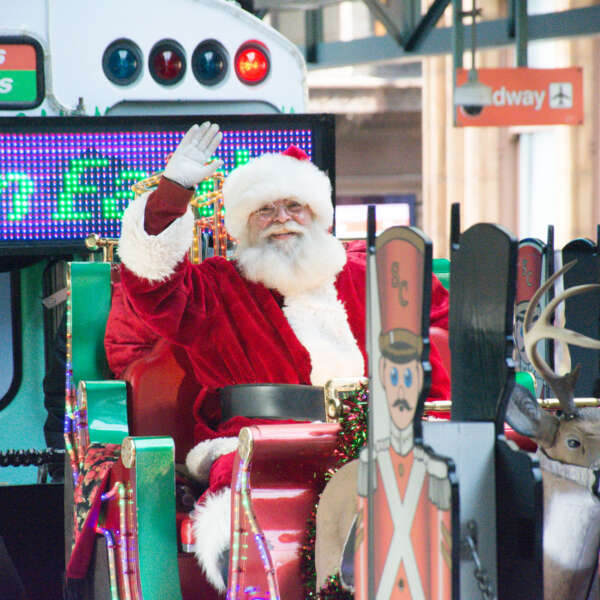RTA mobility pilots explore solutions to first-mile, last-mile commute challenges
May 10, 2021
May 10, 2021

Chicago resident Anni Kask used to spend hours every week driving between her home near Wrigley Field and her office in suburban Bannockburn. On a Cubs game day, the drive home could take as long as three hours.
Although she lives close to the Ravenswood Metra stop, she wasn’t sure transit was an option for her reverse commute because her office is about five miles from the Highland Park station.
Exploring solutions to these first-mile or last-mile challenges is one way the RTA is committed to helping transit Stay Competitive, which is one of the goals of the agency’s 2018-2023 regional transit strategic plan, Invest in Transit. “Last mile” refers to the gap between transit and a rider’s final destination, such as work or school.
To support that goal, the RTA has funded, and is funding, several mobility pilots around the region, including one that helped Anni stop driving to work and take transit instead.
Through a partnership between the RTA and GlenStar Properties, the landlord of the office complex where Anni’s employer is located, Anni participated in a pilot program that paid for her to use Lyft to connect from the Metra station in the suburbs to her office. For Anni to pay for that Lyft ride herself would likely be about $10 each way, on top of her Metra ticket.
“It was such an amazing incentive and I didn’t have to worry about driving or sitting in traffic jams or getting stuck behind accidents,” Anni said. “While my coworkers were sitting in traffic waiting to get home, I would just get on the train and read, relax, or listen to music.”
Anni’s commute trips were among more than 6,000 served by mobility pilots in Bannockburn and Oak Brook, two programs that are described in a new RTA report about how the two pilots worked and what the agency learned while partnering with private companies to meet the needs of riders. The RTA found that working with Transportation Network Companies (such as Uber or Lyft) can be a cost-effective tool to serve a low-demand, sprawling last-mile service area, among other lessons learned.
“Having this kind of option offered to you is fantastic and I think it would be a great incentive for a company to join this location or for new employees to join a company,” said Anni, who has been working from home for about a year due to COVID-19 but hopes to return to transit soon.
View details on the other ongoing mobility pilots the RTA is supporting around the Chicago region in an interactive story map.
Subscribe to our Newsletter
Related Articles
 One year in, Access Pilot Program makes transit more affordable, encourages ridership growth
One year in, Access Pilot Program makes transit more affordable, encourages ridership growth
This month the RTA, Metra, and Cook County are celebrating one year of success for the Access Pilot Program, which provides reduced fares on the entire Metra...
February 20, 2025 How to use transit to celebrate Black History Month in the Chicago region
How to use transit to celebrate Black History Month in the Chicago region
Black History Month celebrates the rich cultural heritage, achievements, and diversity that are an integral part of our country, but often overlooked or supp...
January 27, 2025 How to use transit to get to the 2025 Chicago Auto Show
How to use transit to get to the 2025 Chicago Auto Show
The Chicago Auto Show is the largest auto show in North America and one of the biggest annual events in the Chicago region. While it’s great fun to admire th...
January 27, 2025 How to use transit to celebrate the holidays in the Chicago region
How to use transit to celebrate the holidays in the Chicago region
Whether you’re looking to shop at holiday markets, attend festive performances, or take in all the sights the region has to offer, riding transit is the best...
November 18, 2024 How to use transit to get to Chicago area concert venues
How to use transit to get to Chicago area concert venues
As the birthplace of house and gospel music and a seedbed of blues and modern jazz, Chicago has always boasted a strong musical heritage. Today’s music scene...
November 7, 2024 How to use transit to enjoy fall in the Chicago region
How to use transit to enjoy fall in the Chicago region
Instead of mourning another Chicagoland summer come and gone, start creating your plans to make the most of fall. The RTA has curated a list of indoor and ou...
October 17, 2024